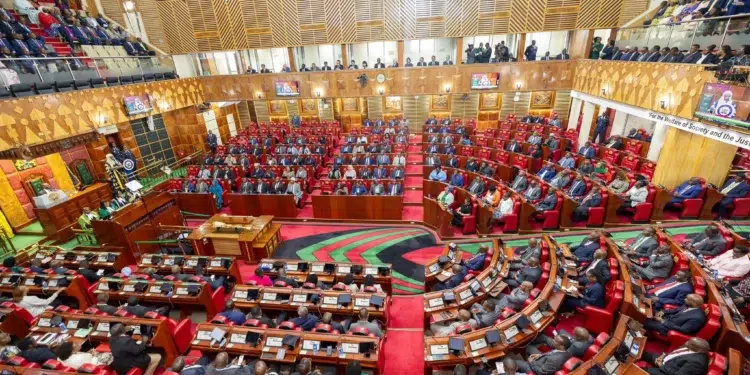The KES104 billion has been the most hyped achievement, alongside affordable in President Ruto’s administration. Since it’s official launch on October 1st, 2024, the Social Health Insurance Fund (SHIF) has had successes and mishaps. With the head of the state rebranding SHIF to Taifa Care, at least to have originality of the national taste, the architecture didn’t change, however.
With the government shifting from the National Health Insurance Fund to SHIF, it aimed at providing a broader strategy to enhance healthcare coverage and address systemic issues that plagued NHIF. The government has maintained that the new health insurance system would be effective in realizing Universal Health Coverage, which aims at making health affordable and accessible to all.
SHIF, now the Taifa Care, is designed to be more inclusive, targeting vulnerable populations previously underserved by NHIF. However, the government has put in place the mechanism or come out to explain how the informal sector, which constitutes the biggest population, channels their monthly contributions.
NHIF was established under the NHIF Act 1998 and had been under the management of a board of trustees, while SHIF/Taifa Care was established under the Socail Health Insurance Act of 2023 and is currently managed by the Socail Health Authority.
SHIF/Taifa Care requires a monthly contribution of 2.75% of gross salary, which must be remitted by the employer on the 9th of every month. The clear difference between NHIF and Taifa Care is that the latter varies and is based on income, while the former caps the maximum contribution at Ksh 1,700 per month.
President Ruto, while delivering the state of the nation on a joint parliamentary meeting on Thursday, November 21st, 2024, rebranded the Social Health Insurance Fund to Taifa Care. The brand name did change, but working criteria haven’t. He hailed Taifa Care as comprehensive coverage that takes care of the entire population as opposed to NHIF.
“The shift from the National Health Insurance Fund model to Taifa Care is fundamental and radical in bith scale and character. NHIF served a few salaried Kenyans and those who could pay, but Taifa Care covers every Kenyan regardless of their employment status,” stated the head of state.
“Unlike NHIF, which primarily catered to salaried workers and those who could afford its premiums, Taifa Care aims to provide coverage for every Kenyan, regardless of employment status,” he added.
The head of state praised Taifa Care as an effective cover offering a broader and more timely coverage at all levels of hospitals and types of diagnoses, including outpatient care, chronic disease management, and preventive services. He therefore urged every Kenyan to register for the new digital health insurance cover.
“For the first time in our nation’s history, free primary healthcare is increasingly becoming available at dispensaries, health centers, and hospitals. Ambulance and emergency services are also slowly but surely being made available at no fee.”
“Under Taifa Care, we have introduced a comprehensive benefits package that brings specialized care, such as cardiothoracic surgery, within reach for many Kenyans, without the burden of financial strain,” he stressed.
A lot of complaints had been experienced at the initial launch of the new health coverage, but a section of Kenyans have also come out to appreciate its effectiveness. A staggering 15 million Kenyans have registered for Taifa Care, considerably lower owing to the bigger population of the country.
The president has acknowledged that Taifa Care is a golden opportunity for Kenyans, something that had failed to materialize in past successive governments. Taifa Care will still operate under the Social Health Authority (SHA) despite the rebranding. SHA is linked to an Adani Group subsidiary.
The President ordered the cancellation of all Adani-related deals, following his indictment and seven other close defendants in New York City, on a multibillion-dollar solar energy contract bribery scheme. The JKIA and KETRACO construction and transmission line expansion contracts are now open to alternative investors, the president said.







